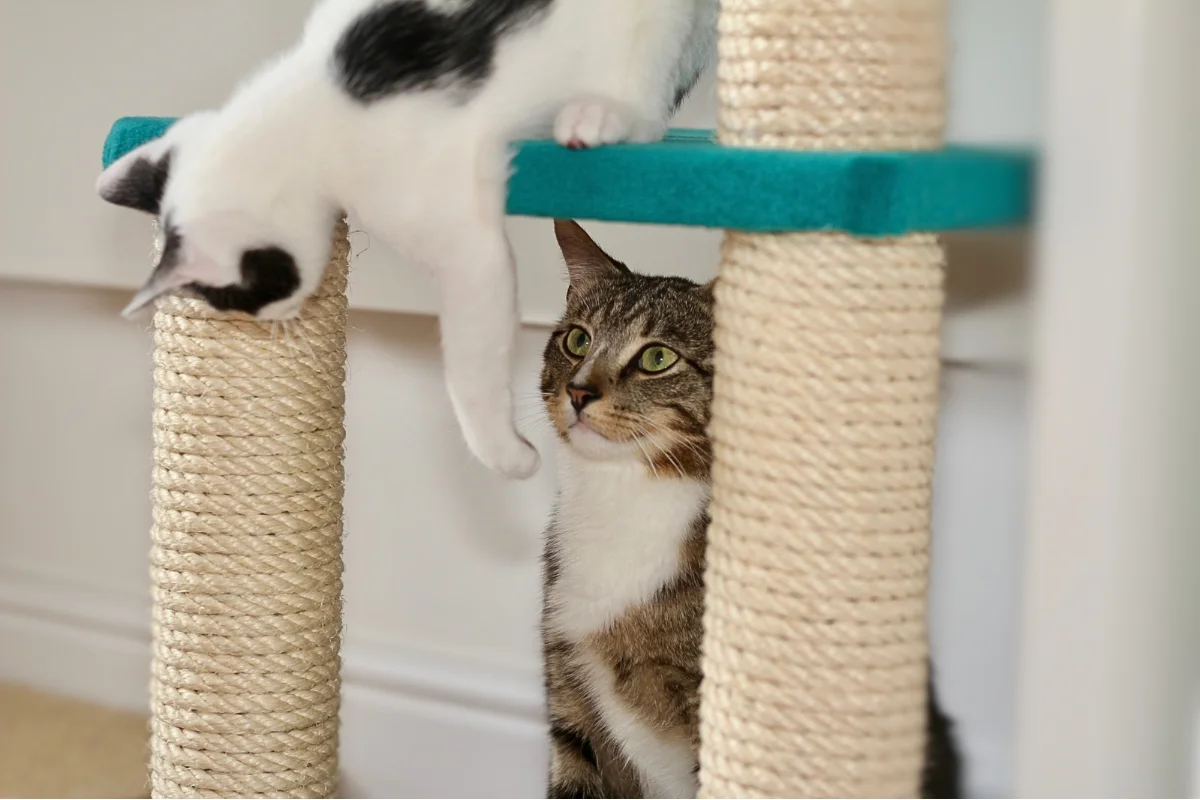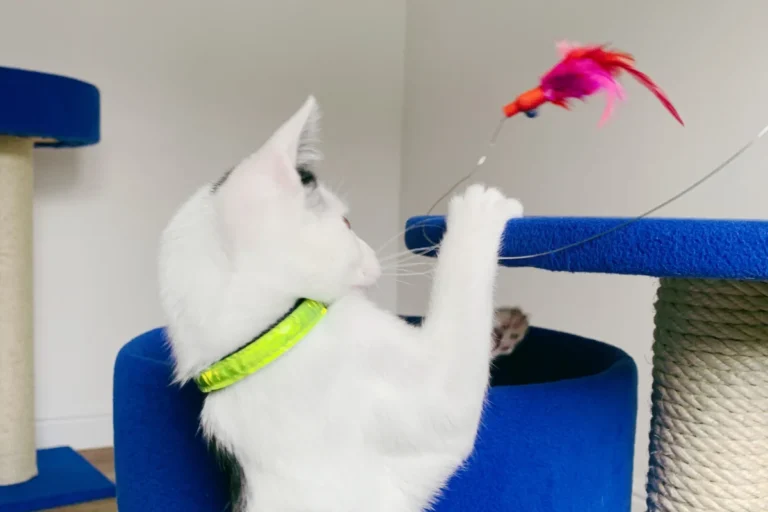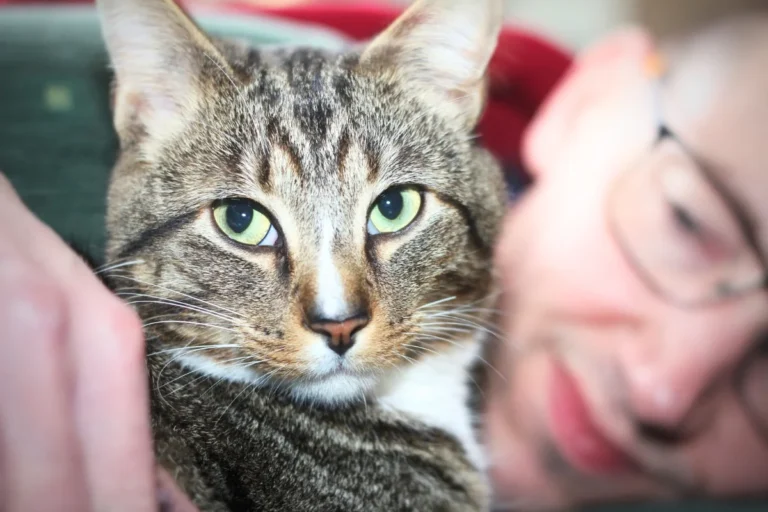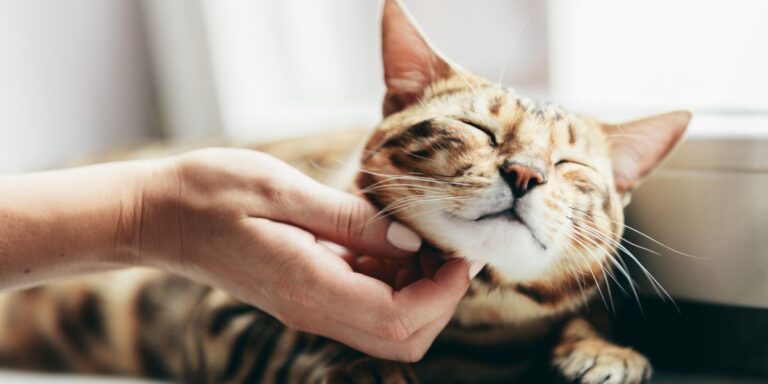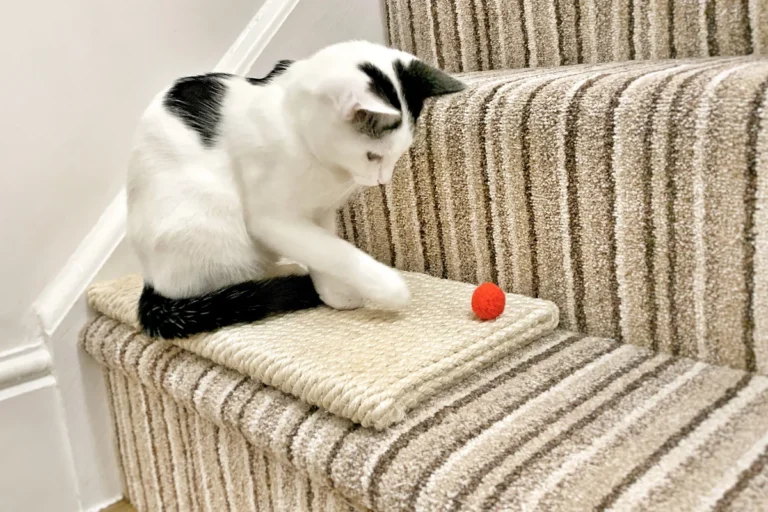Do only tom cats spray urine?
If you’ve ever dealt with a cat’s sudden spraying or heard the phrase ‘Only tom cats spray urine,’ you might have wondered if there’s any truth to it. For years, people have associated this behaviour with male cats, particularly unneutered ones. But is this really true? Do only tom cats spray urine, or is there more to the story?
The truth is, spraying is a natural behaviour for all cats, not just male ones. In this article, we’ll uncover why spraying happens, the reasons behind it, and how it’s not exclusive to tom cats. We’ll also cover how you can address spraying behaviour in your own pet.
Is there any truth behind the myth?
Let’s be clear: no, only tom cats do not spray urine. While it’s true that unneutered male cats are more likely to spray due to the influence of testosterone, spraying is a behaviour seen in both female cats and neutered male cats. Here’s why:
Neutered males still spray. Neutering a male cat reduces the likelihood of spraying, but it doesn’t always stop it entirely. Neutered males may still spray due to stress, territorial disputes, or feeling threatened. While neutering helps reduce spraying frequency, it doesn’t guarantee that tom cats spray urine behaviour will stop entirely.
Hormones influence spraying in male cats. Male cats, especially those that haven’t been neutered, spray more often because of higher testosterone levels. These hormones drive their instinct to mark territory, attract mates, and assert dominance. That’s why unneutered tom cats spray urine more frequently than females or neutered males.
Female cats can spray too. Female cats, especially those in heat, may spray to signal their availability to mates. Even spayed females might spray if they feel threatened, stressed, or anxious. Female cats often use urine spraying to mark territory and express unease, particularly in stressful environments or when there’s a change in their routine.
Key triggers of spraying behaviour
Spraying is a natural behaviour, but it’s not always linked to mating or territory alone. Here are some of the most common reasons why cats spray:
Territorial marking. Cats are territorial by nature. Both male and female cats spray to claim and mark their territory, especially when they feel it’s being encroached upon. This can happen when a new pet enters the house, new furniture is added, or when there’s competition between multiple cats. In multi-cat households, spraying can become more frequent as cats vie for territory.
Stress and anxiety. Changes in the environment can cause stress, leading to spraying. Moving to a new home, the arrival of new pets or family members, or shifts in their daily routine can all create anxiety in cats. Cats that are sensitive to these changes may resort to spraying as a coping mechanism.
Medical issues. If your cat suddenly starts spraying or has accidents outside the litter box, it could indicate an underlying medical issue. Conditions like urinary tract infections (UTIs), bladder inflammation, or even joint pain can affect a cat’s urination habits. A veterinary checkup is essential to rule out health problems if your cat begins spraying unexpectedly.
How to address spraying behaviour
If your cat starts spraying, don’t panic. Here are effective steps to manage or eliminate this behaviour:
Neuter or spay your cat. Neutering or spaying your cat can reduce spraying, especially in males. It helps to decrease the influence of sex hormones, particularly in unneutered tom cats. While neutering doesn’t guarantee that spraying will stop completely, it significantly reduces the chances of it happening.
Manage stress. Stress is a major trigger for spraying. Create a calm and stable environment for your cat. Provide safe spaces for them to retreat, offer plenty of enrichment, and maintain a predictable routine. If another cat or pet causes stress, try using pheromone diffusers or sprays designed to reduce anxiety in cats.
Ensure sufficient resources. If you have multiple cats, ensure that there are enough resources, such as litter boxes, food, water stations and scratching posts. Competition for resources can lead to territorial spraying. Offering plenty of options will reduce conflict and prevent spraying behaviours.
Consult a veterinarian. If spraying becomes persistent, a visit to the vet is necessary. Health issues can sometimes cause changes in urination behaviour. A vet will help diagnose any underlying conditions and rule out medical causes.
Behavioural training. Spraying caused by stress or anxiety can be addressed with the help of a feline behaviourist. These experts can identify the triggers behind the behaviour and teach you techniques to reduce it. Behavioural training will help reduce the impact of environmental stressors on your cat’s behaviour.
Conclusion: Do only tom cats spray urine?
The myth that only tom cats spray urine is false. While unneutered male cats may be more likely to spray due to hormonal factors, female cats and neutered males can also spray. Cats use urine spraying to mark territory, express anxiety, or respond to environmental changes. Understanding the real reasons behind spraying can help you manage the behaviour and create a comfortable environment for your cat.
If your cat starts spraying, don’t jump to conclusions. Look at their health, environment, and stress levels. Neutering, managing stress, and providing sufficient resources will help reduce spraying behaviour. By addressing the underlying causes, you’ll help your feline companion live a happier, more relaxed life.
